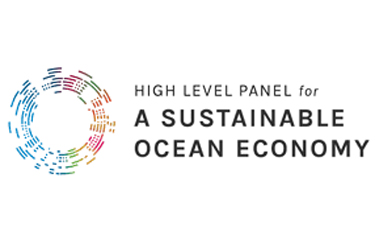A new initiative designed to lessen humanity’s negative impacts on the world’s oceans has been signed by 14 countries.
Several of the countries belonging to the High-Level Panel for a Sustainable Ocean Economy, a consortium of ocean-dependent countries founded in 2018 to initiate action to improve global marine sustainability efforts, announced the Transformations for a Sustainable Ocean Economy: A Vision for Protection, Production and Prosperity initiative on Tuesday, 1 December.
Australia, Canada, Chile, Fiji, Ghana, Indonesia, Jamaica, Japan, Kenya, Mexico, Namibia, Norway, Palau, and Portugal have agreed to jointly pursue a policy agenda of commitments (called Transformations) which include eliminating illegal, unreported, and unregulated fishing, effective implementation of the United Nations’ Port State Measures Agreement, and improving flag state control, while also prohibiting harmful subsidies.
Furthermore, each of the countries has pledged to ensure to sustainably manage waters under their control by 2025. The combined exclusive economic zones of the participating countries add up to nearly 30 million square kilometers – an area roughly the size of Africa.
“Humanity’s wellbeing is deeply intertwined with the health of the ocean. It sustains us, stabilizes the climate, and leads to greater prosperity,” Norwegian Prime Minister Erna Solberg said in a press release. “For too long, we have perceived a false choice between ocean protection and production. No longer. We understand the opportunities of action and the risks of inaction, and we know the solutions. Building a sustainable ocean economy is one of the greatest opportunities of our time.”
Jane Lubchenco, the administrator of the U.S. National Oceanic and Atmospheric Administration (NOAA) under former U.S. President Barack Obama, said the initiative was “a really big deal.”
“What you have now is a hodgepodge [of ocean management], sector by sector, it’s not holistic,” she said. “That does nothing to help recover the health of the underlying ecosystems, and we are seeing a loss of biodiversity, climate change running rampant – business as usual would just continue the decline of the oceans.”
In conjunction with the announcement, the Ocean Panel also launched the “Give It 100%” campaign to encourage the campaign to institute sustainable management of 100 percent of national waters by 2025. Beginning Thursday, 3 December, Ocean Panel countries will host a series of national launch events “to build global political will around their commitments,” which will include the release of country-specific plans and discussions of the specifics of how this initiative will affect each individual country.
The Ocean Panel was advised by a secretariat based in the World Resources Institute (WRI), an expert group composed of more than 70 leading scientists and experts from 26 countries, and the United Nations Secretary-General's Special Envoy for the Ocean. The panel is also working with an advisory network that includes 135 private sector, NGO, and intergovernmental organizations across 35 countries to help it institute change
“We need better management and sustainable use of the ocean’s resources to foster not only a green, but also a blue recovery from the COVID-19 pandemic,” U.N. Secretary-General António Guterres said. “I commend all 14 heads of state and government on the Ocean Panel who have agreed that, by 2025, their countries will sustainably manage all the ocean area under their national jurisdictions, guided by sustainable ocean plans.”
In the short-term, the country that may see the most change from joining the initiative is Ghana, according to a WRI spokesperson. Ghana’s government has faced criticism from fishermen and NGOs for licensing mostly Chinese industrial trawlers, which operate under Chinese fishing companies' local subsidiaries in Ghana. The country’s enforcement of penalties for illegal fishing on the Chinese trawlers has been poor.
“We are certainly aware that this [illegal fishing by foreign trawlers] has been a long-standing issue for Ghana,” the WRI spokesperson told SeafoodSource. “The Transformations document includes some significant commitments that can help move countries, like Ghana, away from a reliance on investment from other nations that don’t necessarily have their best interests at heart.”
Peer pressure may help, as sitting alongside 13 other governments “brings a degree of accountability for the effective implementation of this new agenda,” the WRI spokesperson said.
“It also creates opportunities for bilateral and collective action that can help to overcome technical or capacity constraints,” the spokesperson said. “The evidence base generated through the Ocean Panel process has made a strong case that unsustainable practices don’t have the same dividends over the longer term and we hope that this opens the door to a new conversation.”
According to the WRI, Ghana, Kenya, and Namibia together have indicated that “they wish to elevate the Sustainable Ocean Food agenda within the African Union platform, so that African nations can sustainably develop and reap the benefits from the sustainable and equitable use of natural ocean assets within their waters.”
The lack of combined political will hinders concerted action on illegal fishing in African waters, Greenpeace Africa Senior Oceans Campaign Manager Ibrahima Cisse told SeafoodSource recently.







